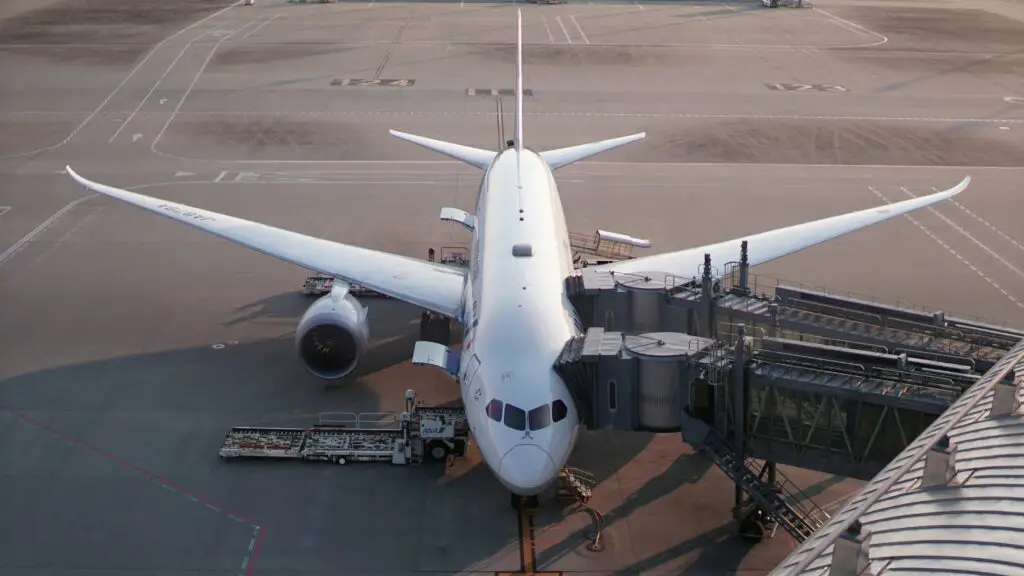Related Posts
How much money do you think your company could lose before you declare bankruptcy? Most entrepreneurs would not survive in the negative $32 billion mark. Yet that’s how much airplane manufacturer Boeing has lost in the last five years—and despite Boeing’s big debt, it’s still afloat!

How does the company do it? Experts say it’s because it is part of a duopoly. That means it is one of only two full-size jet manufacturers. Therefore, its products are in high demand.
That’s not to say the company is without problems. Its biggest issue is its slow pace. Boeing has a backlog of orders for over 5,600 commercial jets with potential earnings of $529 billion. However, quality issues are holding back production and interfering with profit margins.
What is Holding Boeing Back? Can Boeing rebound from Debt?
Although Boeing’s quality issues are holding it back from profitability, it is focused on safety and quality issues like missing bolts that led to January’s air fuselage blowout. Once these issues are overcome, it will work towards meeting the current demand.
Fortunately, the company has time on its side. Due to industry regulations, it won’t be easy for a competitor to step into its shoes. However, it is dealing with its share of challenges.
Past issues have made some passengers mistrust Boeing planes, causing a decline in the market. Multiple federal probes are not helping.
Additionally, an Alaska Air incident involving a door plug of a Boeing 737 blowing out in midflight caused sales to tank after one of the airline’s most profitable years. The issue led to a 20-month grounding of the 737 Max 9, Boeing’s best-selling plane.
As a result, Boeing is now trailing far behind Airbus, its sole rival.
Boeing’s Debt & Money Crisis
The grounding of the 737 Max 9 left Boeing in an unfortunate financial situation. In the second quarter of 2019, the time the plane was grounded, Boeing reported $31.9 billion in losses. Boeing’s net losses for that period equaled $27 billion.
Boeing also generated an incredible amount of debt, which increased from $13 billion at the end of 2018 to the $48 billion the company now owes.
If the company incurs more losses, it could achieve junk bond status. It will need to raise capital quickly to avoid a financial takeover. According to Moody’s ratings, Boeing will not have enough to cover the $4.3 billion in debt it will owe for 2025 or the $8 billion in debt coming due in 2026. They may have to issue new debt to cover those expenses.
Will Boeing Make It?

Boeing’s financial forecast looks bleak, but it has some advantages. First, its main competitor, Airbus, is not doing so well either. It has a backlog of 8,000 commercial jets and is likely to only deliver about 800 this year.
As a result, it is not likely to steal Boeing’s business any time soon. Therefore Boeing’s debt will not have a major direct immediate impact.
If a new competitor stepped up to bat, it would take them several years and cost billions of dollars for them to come up with a competing model.
Furthermore, it’s difficult for airlines to switch from Boeing to Airbus. They must fly on the jets their company is certified for. They would also need to stock up on parts from both manufacturers to handle repair needs.
Staff Issues Play a Role
The airplane manufacturing giant’s future may also improve with staff changes. CEO Dave Calhoun, who has led the company since 2020, has announced his intention to retire at the end of the year. Experts believe a new leader could bring a fresh outlook to help the company relieve its financial debt.
Meanwhile, the company is working internally to improve its situation. “We’re committed to managing the balance sheet in a prudent manner with two objectives. One, prioritize the investment grading; and two, allow the factory and supply chain to stabilize for a stronger trajectory as we exit this year,” said CFO Brian West.

